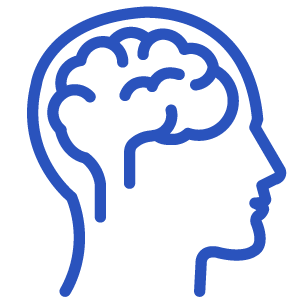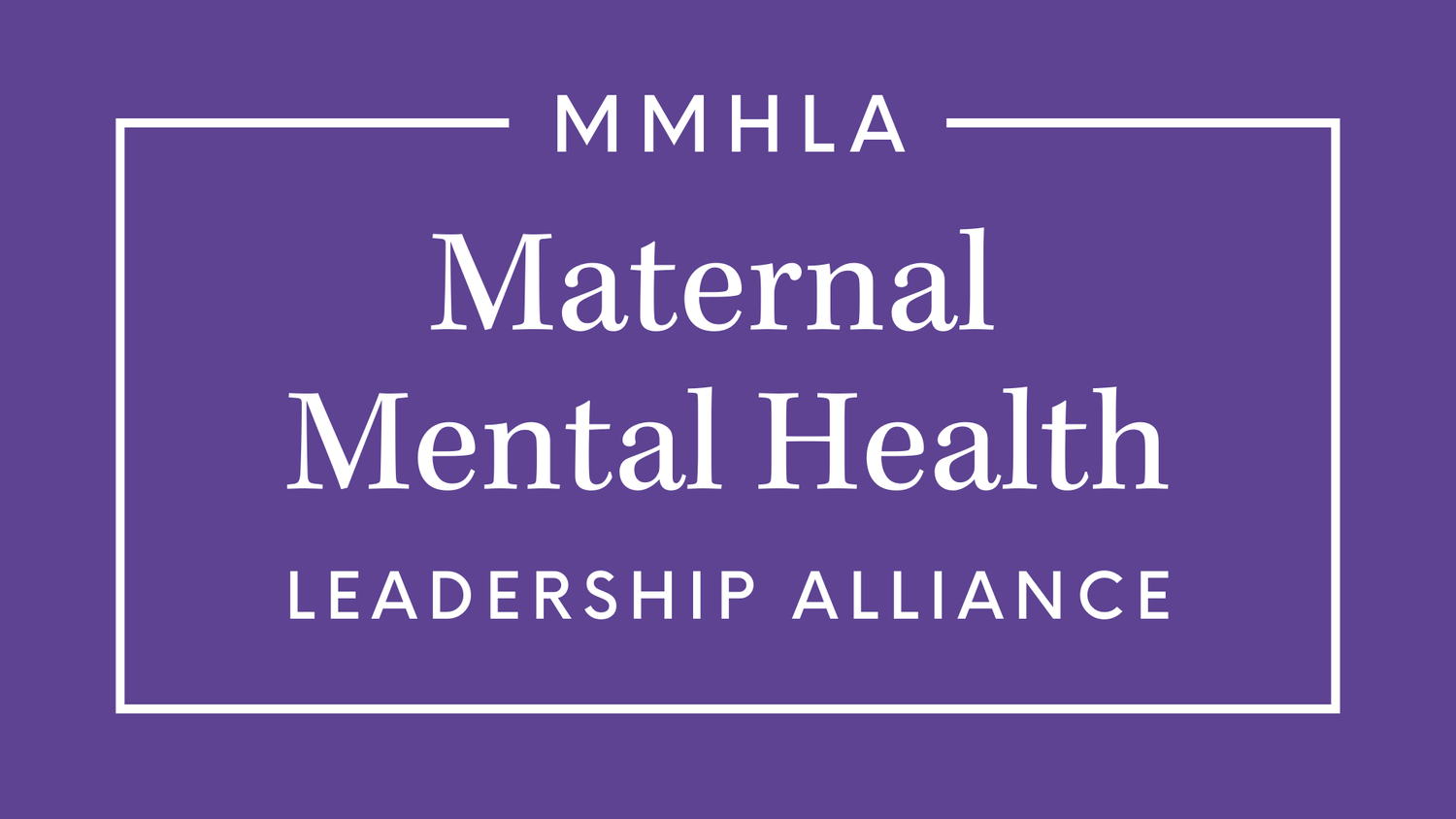
Maternal Mental Health Conditions
Do you or someone you know need help? Click here for emergency and general resources.
Learn More with Our Maternal Mental Health Overview Fact Sheet
The United States is experiencing a maternal mental health crisis.
-

-

Mental health conditions are a leading cause of maternal mortality, accounting for 23% of pregnancy-related deaths.
-

75% of women experiencing maternal mental health conditions do not get the care needed for recovery.
-

The cost of not treating maternal mental health conditions is $32,000 per mother-infant pair totaling $14.2 billion nationally.
-

Left untreated, these illnesses can have long-term negative impacts on parents, babies, families, and society.
-

Specific groups have a higher risk for maternal mental health conditions as determined by race, ethnicity, family history of mental illness, pregnancy and birth experience, and other risk factors.
Maternal Mental Health Conditions FAQs
-
Maternal mental health (MMH) refers to a range of conditions or illnesses that can occur anytime during pregnancy or the first year following pregnancy and include:
Depression
Anxiety
Obsessive-compulsive disorder
Post-traumatic stress disorder
Bipolar disorder (which may include psychotic symptoms)
Substance use disorder
Postpartum psychosis
Learn more about at Postpartum Support International.
-
Maternal mental health (MMH) conditions are bio-psycho-social illnesses most often caused by a combination of changes in biology, psychology, and environment.
Some people are physically predisposed to anxiety, depression, or other mental health disorders, while others are sensitive to the hormonal fluctuations during pregnancy and the immediate postpartum period. Some new parents have trouble adjusting to the changes associated with having a new baby in the home, such as lack of sleep or isolation from family, friends, or co-workers. Sometimes having a new baby overlaps with existing stressors, such as relationship challenges, financial concerns, or changes in living or working situations.
Whatever the cause, individuals experiencing MMH conditions need to know that they are not alone, they are not to blame, and with help they will be well.
-
Maternal mental health conditions are often temporary and treatable. Recovery typically includes a combination of self-care, social support, talk therapy, and medication. In rare cases, hospitalization may be necessary. Learn more about The Steps to Wellness.
-
The Baby Blues are a normal period of transition as the new parent recovers from the physical and emotional experiences of pregnancy, labor, and delivery. The Baby Blues affect up to 85% of new mothers and typically include emotional sensitivity, weepiness, and/or feeling overwhelmed. Baby Blues resolve without treatment within 2-3 weeks following pregnancy.
-
Individuals experiencing maternal mental health (MMH) conditions can experience a wide range of or changes in emotions, including:
Feeling sad, hopeless, or helpless.
Feelings of anger, guilt, irritability, rage, or regret.
Having difficulty bonding with the new baby.
Feeling anxious or panicky.
Having problems with eating or sleeping.
Having scary, intrusive, racing, or unwanted thoughts.
Feeling as if you are out of control or “going crazy.”
Feeling like you never should have become a mother.
Lacking motivation, concentration, or energy.
Worrying that you might hurt your baby, yourself or someone else you love.
Experiencing unexplained physical symptoms, such as headaches or stomach aches.
-
Individuals experiencing maternal mental health (MMH) conditions can experience a wide range of or changes in emotions, leading to say things like:
I worry all the time.
Why am I such a failure?
Having a baby was a mistake.
I’m not bonding with my baby.
I’m afraid to be alone with my baby.
I feel like the worst mother in the world.
I’m having thoughts that are scaring me.
I’m exhausted but can’t sleep, even when my baby sleeps.
I’m supposed to be happy; why do I feel sad (or overwhelmed or anxious)?
I’m such a bad mother, my baby (or family) would be better off without me.
Everything would be better if I just got a good night’s sleep (or got some exercise, or lost weight, or ….).
-
Having a personal or family history of mental illness is the leading risk factor for experiencing maternal mental health conditions. In fact, the #1 predictor of a maternal mental health condition is a previous experience with such a condition. Other risk factors include:
Lacking social support, especially from one’s partner.
Experiencing a traumatic birth or previous sexual trauma.
Having a baby in the neonatal intensive care unit (NICU).
The social determinants of health (i.e. the conditions in the environments where people are born, live, learn, work, play, worship, and age) can exacerbate or increase the risk of experiencing a maternal mental health condition.
Some parents – including Black and brown individuals, immigrants, and those living in low-income neighborhoods – are more likely to experience maternal mental health conditions but less likely to get care due to:
Lack of access to healthcare, including culturally appropriate mental health care.
Cultural and racial biases in the healthcare system.
More barriers to care, such as lack of transportation or child care.
Fear that child protective services or immigration agencies will become involved.
-
When left untreated, maternal mental health (MMH) conditions can have long-term negative impact on mother, baby, and family. Women experiencing untreated MMH conditions during pregnancy are more likely to not receive adequate prenatal care, have poor nutrition, and use substances, all of which can increase the risk of poor birth outcomes for the baby, including preterm birth, low birth weight, small head size, and longer stays in the hospital. New mothers experiencing MMH conditions are more likely to experience breastfeeding challenges, have fewer positive interactions with their baby, and question their competence as mothers. Mental health issues in the home may result in an Adverse Childhood Experience, which can impact the long-term health and mental health of the child.
Fortunately, MMH conditions are often temporary and treatable. Learn more here.
-
Many different terms are used when discussing the mental health challenges that pregnant and postpartum individuals experience. The following adjectives describe the time during and following pregnancy: antenatal or prenatal (during pregnancy), postpartum or postnatal (following childbirth), or perinatal (roughly two-year timeframe that includes pregnancy through the first full year following pregnancy). The following nouns are used interchangeably: mental health challenges, complications, conditions, disorders, illnesses, or issues.
Postpartum depression (PPD) has long been used as an umbrella term encompassing mood changes following pregnancy, but more expansive wording is now often used, such as:
Antenatal / prenatal / perinatal / postnatal depression and anxiety
Perinatal mood disorders (PMDs)
Perinatal mood and anxiety disorders (PMADs)
Maternal mental health (MMH) challenges / complications / conditions / disorders / illnesses / issues
-
All parents — including fathers, partners, and adoptive parents — can experience changes in mood when there is a new baby in the household. As many as 1 in 10 fathers experience postpartum depression or anxiety. In fact, the leading risk factor for paternal depression is maternal depression. Learn more here.

